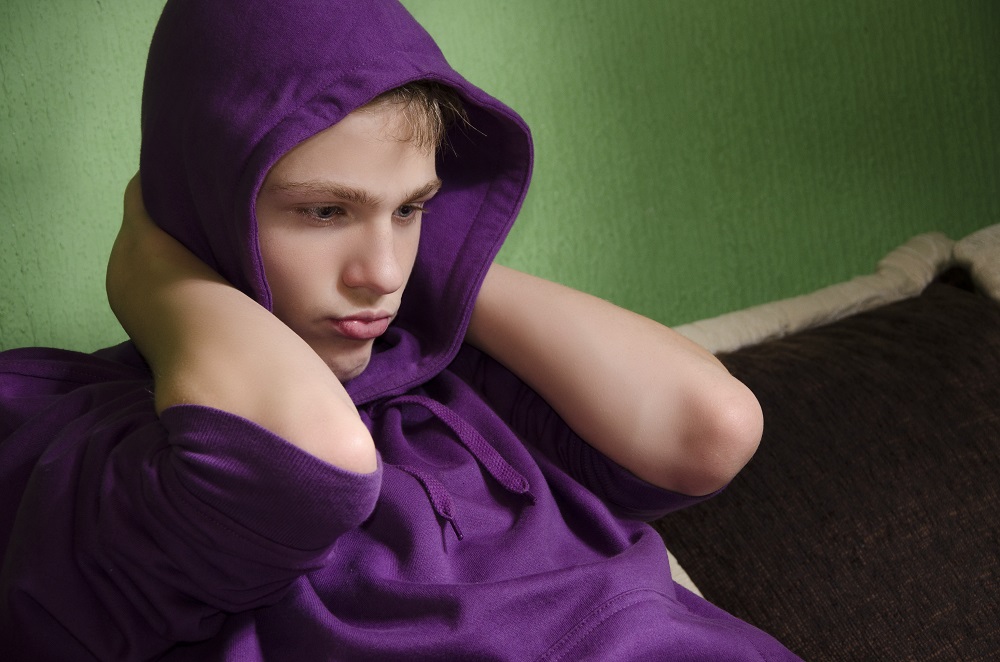
No parent wants to face the truth that their child may be the victim of bullying. Unfortunately, however, it is a continued reality that many children and teens encounter on a daily basis. In fact, about 1-in-5 middle to high-school-aged kids have been bullied during the school year.
Bullying is more than just an unfortunate situation – it is a problem that, when reoccurring, can cause difficult, severe and prolonged mental health struggles that children and teens end up dealing with for many years.
As a parent, it is important to know the signs of bullying, what this form of mental abuse looks like and the long-term effects of bullying in order to best help a child receive the tools they need to cope.
What does mental abuse & bullying look like?
Bullying is a form of mental abuse that targets a victim for a number of reasons. It may be a difference in social status between two children, or different groups of children; sometimes it has roots in peer pressure; other times a child may channel internal frustrations/conflicts into bullying another child.
For example, some children may be experiencing a tumultuous home life; if they do not have any tools to cope with those difficulties, they may resort to bullying other children in order to feel some level of control over their circumstances.
There are many different ways in which bullying can take place. Some assume bullying involves physical attacks on a person, and while this is one form, bullying can be much more subtle, even indirect. Types of bullying and mental abuse include:
- Cyberbullying, where teens post harsh comments or send degrading/inappropriate messages to other teens
- Verbal harassment, accounts for over 70 percent of bullying types
- Physical harassment, including punching, slapping and shoving
- Social bullying, including rumor spreading and intentionally trying to ruin a person’s reputation or relationships
While not every child will be a victim of bullying, most children are likely to witness bullying at some point in their adolescence. Some children will even develop habits that lead to bullying others. As a parent, the best thing you can do is know the signs and risk factors and be prepared to intervene when necessary.
Bullying risk factors
Certain factors may make a child more at risk for being the target of bullying, including:
- Not getting along with other children, or provoking/irritating others for attention
- Being viewed as different, such as being the new student, being viewed as unpopular or simply having a physical appearance that does not match the expectations of the other children
- Are seen as weak or incapable of defense or retaliation
- Struggle with mental stability, and show signs of anxiety or depression
- Don’t have as many friends or stay to themselves more often
Just because your child displays some of these signs does not immediately make them the subject of bullying. Studies simply show these characteristics tend to be the more common targets, meaning parents can better equip their children in defense against potential bullying.
Effects of bullying
If your child has been the victim of bullying, certain effects will begin to appear. While some of these may be actual physical injuries, the majority of signs are more likely to be less obvious.
Signs of mental abuse and bullying include:
- Injuries the child cannot reasonably explain
- Damaged clothing
- Complaints of constant stomaches or headaches
- Pretending to be ill to avoid school or social events
- Worsening grades at school
- Loss of property like phones, jewelry, books and electronic gadgets
- Sleeping problems, including insomnia and nightmares
- Significant changes in behavior
- Running away from home
- Self-harming or talking about suicide
If you notice these symptoms, talk to your child to get a deeper understanding of what is going on in their life. It can be difficult to get your child to admit to being bullied, but it may help to talk to your child’s friends to see if they can offer explanations for the symptoms you notice.
It is important to understand that many children are reluctant to let others know they are being bullied. Many fear the situation will worsen if they seek help. Ensure their safety and let them know you are here to help.
Helping your child handle mental abuse
Try to start a conversation and get your child to talk about the problems they are experiencing. If the bullying takes place at school or in a social setting such as a club or sports team, talk to someone in the administration and make them aware of the problem. The more people who are made aware of it, the less opportunities the bullying will have to take place.
If the bullying occurs in the neighborhood – that is, outside of an academic setting – consider raising the matter with the parents of the child who is doing the bullying but try to avoid being confrontational. Propose that you both work together to stop the bullying.
Additionally, take the mental effects of bullying into consideration and seek the proper care for your child if necessary. The counselors at High Focus Centers are equipped to help children, teens and even adults who have been the victim of bullying recover from these challenges and cope with negative side effects.
To learn more, contact us to get in touch with someone today.
Recent Posts
- How Mood Stabilizers Work to Restore Emotional Balance
- Trauma-Informed Approaches in Therapy: Why Understanding Trauma is Essential for Healing
- Using Art as a Voice: Exploring the Therapeutic Benefits of Creativity
- What is Xylazine?
- How Overcoming Roadblocks is Crucial to Recovery – And How Your Treatment Center Can Help




